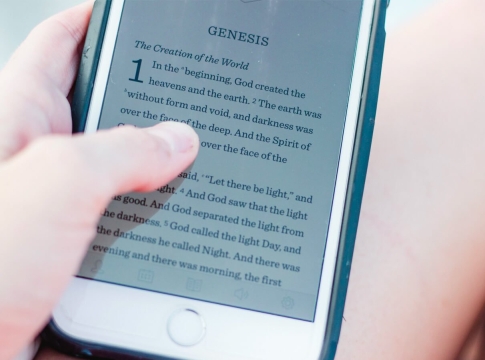
A significant book in the Bible is Deuteronomy. The last book of the Torah, which consists of the first five books of the Bible, establishes the framework for the later historical books in the Old Testament. Moreover, the New Testament frequently references Deuteronomy.
The book of Deuteronomy is structured like an old treaty book from the second millennium BC. The preamble is followed by a historical prologue, general and specific provisions, blessings and curses, a document clause, and the calling of witnesses.
Historical prologue (Deuteronomy 1:4-43)
The covenant between God and Israel is central to the book of Deuteronomy. After forty years of wandering through the wilderness, the Israelites have arrived at the boundaries of the promised land.
Moses is aware that he cannot get inside the land. It’s his final speech to the crowd. This parting address is devoted to a significant portion of Deuteronomy. He starts by reliving the events leading up to the arduous trek across the woods. Israel had been on the Canaanite frontier over forty years before. Spies they sent ahead to the land reported seeing giants and powerful cities.
The Israelites lost faith in the might and fidelity of their God, who had promised them the land, and instead grew fearful. God punished the rebels by forcing all Israelites aged twenty and upwards to perish in the wilderness. The land would pass down to only their offspring. After forty years, Israel entered the region east of the Jordan River after passing through Edom, Moab, and Ammon.
They overthrew Og, the king of Bashan, and Sihon, the king of Heshbon. The tribes of Reuben, Gad, and the half-tribe of Manasseh fought over that portion of the territory. There were also three designated sanctuary cities.
General covenant stipulations (Deuteronomy 4:44-11:32)
Moses gets to the general covenant requirements after describing the historical journey. On Mount Horeb, God established a covenant with Israel (Deuteronomy 5:2). All that God demanded of His people is summed up in the Ten Commandments. Therefore, Moses begins by restating this divine command: “I am the Lord your God, who brought you out of the house of slavery, out of the land of Egypt” (Deuteronomy 5:6). We’ll get into more detail about these ten words in the remaining chapters of Deuteronomy.
“Hear, O Israel: The Lord our God, the Lord is one,” says Moses, urging the people to serve the Lord God with all of their hearts. Deuteronomy 6:4-5 states, “You shall love the Lord your God with all your heart, all your soul, and all your might.” [The God of Israel] is the one God. Among all the nations, He has selected this people to fear Him. They will therefore only experience peace and the blessing of the Lord God if they obey God’s commands.
When people are prosperous, they should never lose sight of God; else, their joy would fade quickly. The people were rife with immorality, so they have no right to brag about their beginnings. God has selected them to be His people by His own free will. Accordingly, the Israelites should cease being obstinate and circumcise the foreskin of their hearts (Deuteronomy 10:16).
Special covenant stipulations (Deuteronomy 12-26)
Moses has informed the people of God’s overall will in the preceding chapters. He addresses a wide range of particular situations in chapters 12 through 26, arranging them approximately according to the Ten Commandments. Moses forbids consuming filthy food and idolatry. He gives the people instructions on how to observe the high feasts, Sabbath years, and tithe payments.
Moses provides guidelines for priests, [kings], and prophets. Additionally, he reveals God’s commandments pertaining to property and sexuality. Since all of these directives revealed God’s intent, they allowed the people to live their lives in accordance with God’s precepts.
Blessing and curse (Deuteronomy 27-28)
The blessings and curses that had to be delivered on the mountains Gerizim and Ebal represent the culmination of the lengthy set of regulations. A bountiful gift would be bestowed to the people if they would heed God’s voice and observe His commandments. The people would live in peace and the country would be plenty with fruit: “The Lord will command the blessing on you in your barns and in all that you undertake.” And in the land that the Lord, your God, is giving you, He will bless you.(Leviticus 28:8).
But the worst of plagues will fall upon them if they stray to the right or left, if they reject God’s instructions and do not strictly adhere to His regulations. Sickness, famine, conflict, and misfortune will consume them. There will be a led into exile population.
Closure (Deuteronomy 29-34)
Moses persuades the people to choose the Lord and His worship using a variety of arguments. Conversion offers a path out even in cases when the curse of the covenant has overtaken them. Moses gives them the option to choose between death and life. Life is given to those who chose the Lord. Whoever disobeys Him will perish. Joshua is designated as Moses’ successor in Deuteronomy 31. Moses then performs a song for Israel that serves as a witness. At last, Moses blesses the tribes of Israel and passes away on Mount Nebo.
Lessons for us
- God’s desire to establish a covenant with Israel is a result of grace.
- Because God is holy, it matters not how He is worshipped. That is evident from the lengthy list of commandments in Deuteronomy. Receiving God’s revelation is a blessing since it enlightens us as to what God requires of us.
- It is impossible to properly obey God’s commands on your own. This has been demonstrated time and time again throughout Israel’s history. They have been cursed as a result of their misdeeds and transgressions. “Christ redeemed us from the curse of the law by becoming a curse for us — for it is written, ‘Cursed is everyone who is hanged on a tree’ — so that in Christ Jesus the blessing of Abraham might come to the Gentiles, so that we might receive the promised Spirit through faith,” is the New Testament response, which includes verses from Deuteronomy. (See Deuteronomy 21:23; compare Galatians 3:13–14).
- Moses’ advice takes on fresh meaning when we are once more in a healthy covenant relationship with the Lord via Christ.





